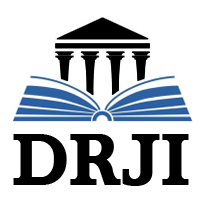Transition from Paper Currency to Digital Currency: Extracting lesson from Imam Ahmad Raza's Juristic View on Paper Currency
Keywords:
Paper Currency, Digital currency, cryptocurrency, imam Ahamd RazaAbstract
The Islamic perspective on crypto-currency is a complex and evolving discourse, grounded in Shariah principles that guide financial and ethical conduct for Muslims. Crypto-currencies like Bitcoin and Ethereum introduce both opportunities and challenges within the Islamic financial framework. Their decentralized nature and potential to foster financial inclusion resonate with Islamic values of equity, fairness, and transparency. However, concerns persist due to their high volatility, speculative characteristics, and lack of intrinsic value, which may conflict with Islamic prohibitions against Riba (interest), Gharar (excessive uncertainty), and Maysir (gambling). Additionally, the absence of a clear regulatory framework raises questions about the ethical management of risks and adherence to usury regulations. This paper seeks to draw insights into crypto currencies from Imam Ahmad Raza’s juristic approach to accepting paper currency in the early 20th century. His methodology provides a balanced approach to modern issues through Ijtihad, offering a pathway that aligns with contemporary practices while respecting Islamic principles. Despite varying scholarly views—where some Islamic jurists cautiously support crypto-currencies and others advocate a conservative stance—the dynamic landscape of digital finance demands ongoing research and reflection to harmonize emerging financial technologies with Islamic jurisprudence. Policymakers must thoroughly assess the implications of crypto-currencies to ensure coherence in monetary policy, avoiding potential disruptions in the financial system.























